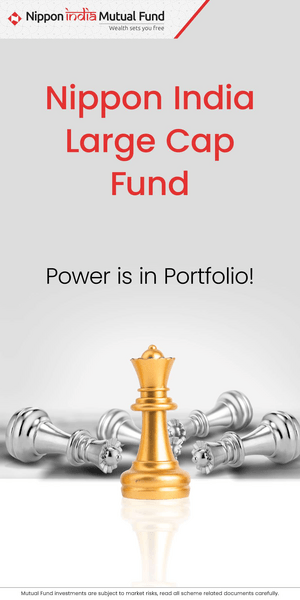How to make the most of current investment opportunity

Spread of Coronavirus pandemic across the world has sent stock markets around the world in a free fall. From its all time high of nearly 42,000 in mid January, the Sensex broke below 26,000 levels towards the end of March 2020. Over the last 2 – 3 weeks we saw a good recovery in the market and the Sensex is now trading above the psychological 30,000 level. Despite the recovery, Sensex is still down more than 23% on a year to date basis (as on 18th March 2020).
Suggested reading: What should investors do when market is at its historic lows
The history of stock markets around the world and India show that there always is a recovery after a downturn.

Source: Bombay Stock Exchange, Advisorkhoj Research
Attractive investment opportunity
With the Sensex and Nifty down 26 – 27% from its all time highs (as on 17th April 2020), there are attractive investment opportunities for investors with a long investment horizon.
Many investors were concerned about large cap valuations at the beginning of this year, but the correction has brought the valuations down sharply. The chart below shows the 20 year history of the Nifty Trailing Twelve Months (TTM) Price Earnings (PE) multiple (till 17th April 2020). You can see that current Nifty valuation is near the levels (see regions in the chart circled in red) from where the market recovered sharply to make new highs.

Source: National Stock Exchange, Advisorkhoj Research
How to benefit from recovery?
Though the bear market has affected most stocks, the correction has impacted different stocks differently. Also how high individual stocks recover from the bear market will depend on their business models, management quality, market leadership and financial strength. The current economic situation is extremely complex and volatile. Identifying stocks which will outperform in this environment and ensuing recovery will be challenging. We think that investing in an index is the best way to take advantage of the eventual recovery in stocks.
Why investing in an index will be advantageous now?
- This bear market unlike other severe bear markets has not been caused by an economic crisis, but by a severe health crisis which in turn has led to an economic crisis due to lockdowns. Economic recovery will take place only when the health crisis is over or brought under reasonable control. Since this is a novel virus, there is a lot of uncertainty about near to medium term outlook. In times of extreme uncertainty stock specific risks are very high. As such, this is an opportune time to invest in indices.
- Though actively managed diversified equity funds aim to diversify to stock specific risks, fund managers may be overweight on certain stocks (relative to indices) to deliver alphas. If the fund managers get their calls wrong due to the complexity of the economic environment, then your investments may underperform. In such situations, index investing may be better investment option if you want to avoid fund manager risks.
- History of stock markets shown there multiple legs of decline in most severe bear markets. So far we have seen just one leg of the decline and some stocks have underperformed the indices. If there are further legs of declines, specific stocks depending on their individual business situations will underperform the indices and their recoveries will also take much longer.
- In times of extreme risk aversion, sentiments matter more than fundamentals. In our market, the two frontline indices, Sensex and Nifty reflect investor sentiments more accurately than the broader market.
- In the past, recovery from severe bear markets was led by the Nifty and Sensex heavyweights. Both Nifty and Sensex are free float market cap weighted indices. So stocks which perform well in the current situation and recovery will be given higher weights in the indices automatically. This can lead to outperformance in the near to moderate term.
How to invest in indices?
ETFs and Index Funds invest in a basket of stocks that replicate the composition of a market index like Sensex, Nifty, BSE – 100, Nifty – 100 etc. ETFs and Index funds do not aim to beat market returns, their objective is to track deliver market returns by tracking the benchmark index’s performance as closely as possible. The costs (total expense ratios) of ETFs and index funds are much lower than actively managed mutual funds. Since costs of ETFs and index funds are much lower than actively managed funds, they outperform the actively managed funds which are not able to deliver sufficiently high alphas.
The main difference ETFs and Index Funds is that ETFs (after the NFO subscription window) are bought and sold in stock exchanges. You need to have trading and demat accounts to invest in ETFs. Index funds, on the other hand, are mutual funds which can be purchased or redeemed from / with AMCs. You do not need demat accounts to invest in Index Funds. ETFs usually have lower TERs compared to Index Funds.
You must read: Why should you allocate a portion of your investment portfolio to NIFTY ETFs
How to select ETFs and Index Funds?
There are three important parameters which investors should look at when investing in ETFs or index funds:-
- Total Expense Ratio: Lower the expense ratio, higher the return for the same underlying assets.
- Tracking error: Tracking error is the deviation between index return and the ETF return. This is an important performance parameter because your are essentially investing in the index
- Liquidity: This is an extremely important factor for ETFs because unlike mutual funds (including index funds), ETFs are bought and sold in the stock exchanges. If an ETF is not very liquid, you may not find enough buyers when you want to sell your ETFs.
Conclusion
The sharp correction in stock prices has created attractive investment opportunities. Due to the uncertainty surrounding the near term economic outlook, we think that index funds and ETFs are the best investment options to benefit from the eventual turnaround from this downturn. If you have demat account then ETF is the best investment option, else can invest in index funds. Investors should consult with their financial advisors before investing.
Mutual Fund Investments are subject to market risk, read all scheme related documents carefully.
RECOMMENDED READS
LATEST ARTICLES
- Importance of staying invested in the choppy market
- Two new promising smart beta funds: Nippon India Nifty 500 Low Volatility 50 and Nifty 500 Quality 50 Index Funds
- Going hybrid in the current environment
- Asset allocation is key to long term investing: Hybrid funds make a lot of sense in current market conditions
- Should you invest in momentum funds: Why momentum works in investing
The information being provided under this section 'Investor Education' is for the sole purpose of creating awareness about Mutual Funds and for their understanding, in general. The views being expressed only constitute opinions and therefore cannot be considered as guidelines, recommendations or as a professional guide for the readers. Before making any investments, the readers are advised to seek independent professional advice, verify the contents in order to arrive at an informed investment decision.
Mutual Fund investments are subject to market risks, read all scheme related documents carefully.
Quick Links
Follow Nippon India MF
More About Nippon India MF
POST A QUERY




